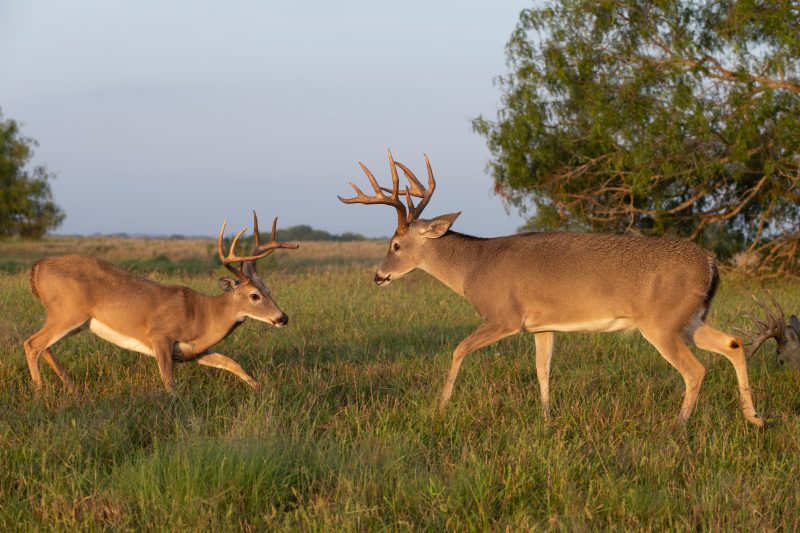
Bucks on a Texas Ranch. Hunting leases can provide addition income for farms and ranches but before you agree to terms you should spend some time considering your expectations and put them in writing for a signed lease agreement. Credit: Dennis Donahue, Adobe Stock 210340421
Source: Rusty Rumley, Senior Staff Attorney, The National Ag Law Center, Southern Ag Today
As fall approaches, so does hunting season. As hunters are scouting for the best locations, landowners may be searching for opportunities to generate additional revenue from agricultural and forested property. Outdoor recreation such as hunting, fishing, camping, and hiking can provide additional opportunities for landowners, depending upon the property and the willingness of the landowner to go down this path. Not all landowners are willing to accept strangers walking around their property, so recreational leases are not a perfect fit for everyone. The leases can also be challenging as they differ significantly from traditional agricultural leases.
When considering these leases, landowners must make decisions on what types of activities and limitations they are willing to allow. Some of the issues to decide include:
-
How do you price your recreational opportunities?
_ -
How many people have permission to enter the property?
– -
Can the lessees camp and build campfires on the property?
– -
What species are being hunted?
– -
Are there limits on the amount of game that can be taken?
– -
How do you allow for recreational use while protecting growing crops and livestock?
–
However, there are other issues that may be addressed through the lease as well as other means. For example, what about liability in case someone is injured on your property? Insurance is a readily available and cost-effective means to reduce liability. Based on my conversations with insurance underwriters over the years, many claims submitted for hunting accidents involve tree stands and ATVs. In addition to insurance, simple changes to a lease agreement such as forbidding ATVs and limiting tree stands to only ones that they personally install, may help to mitigate those and other risks.
To see a more in-depth list of factors to consider in a hunting lease, as well as a model lease form, use the following link: TX A&M Hunting Leases. You may also want to access the entire 130-page Ranchers’ Agricultural Leasing Handbook: Grazing, Hunting and Livestock Leases Handbook which discusses these issues and many more that landowners should consider.
Even with this information, I strongly recommend that an attorney draft your recreational lease, specific to your property, your boundaries and your situation. For tips on finding an attorney, please visit this Southern Ag Today article: Finding a Lawyer.
–
Rumley, Rusty. “Hunting Leases and Rural Land.” Southern Ag Today 4(36.5). September 6, 2024.
